

Government Travel Charge Card - Financial and Travel System Transition Guidance

Having trouble viewing this email? View it as a Web page .
ALCGPSC 128/22 SUBJ: GOVERNMENT TRAVEL CHARGE CARD (GTCC) PROGRAM: FINANCIAL AND TRAVEL SYSTEM TRANSITION GUIDANCE - UPDATE
- ALCGPSC 081/22 GOVERNMENT TRAVEL CHARGE CARD (GTCC) PROGRAM: FINANCIAL AND TRAVEL SYSTEM TRANSITION GUIDANCE
- ALCOAST 096/22 COMMANDANT DIRECTS STAND UP OF FSMS INCIDENT MANAGEMENT TEAM
- Government Travel Charge Card (GTCC) Program Policies and Procedures, COMDTINST M4600.18 (series)
- Joint Travel Regulations (JTR)
- Personnel & Pay Procedures Manual, PPCINST M1000.0 (SERIES)
- This message cancels reference (A). Restrictions on the use of the Centrally Billed Account (CBA)remain. The expanded use of the Government Travel Charge Card (GTCC) Individually Billed Accounts (IBA) to support travel until the Financial Systems Modernization Solution (FSMS) Incident Management Team (IMT) objectives are met as indicated in reference (B)are extended as well. These policy waivers offer a reliable means of financial support, particularly for Permanent Change of Station, Long-Term TDY, and Disaster Evacuation Orders. Members who currently do not possess a GTCC are strongly encouraged to apply for one as soon as possible to prevent unnecessary charges to the CBA.
- Mission Critical (MC): MC status will expire on 30 September 2022. If your "balance due" is not paid in full by 28 October 2022 your GTCC account will become past due. Cardholders are required to file a travel voucher within three (3) days of travel completion and should use split disbursement to pay the balance. Cardholders are reminded to use the same "pay to" method on their voucher that they selected on their travel authorization. Vouchers shall be submitted for all completed travel to obtain reimbursement or identify system issues that need to be resolved for payment. Personnel experiencing voucher complications will have until 13 October 2022 to have their accounts resolved and then settled in Citibank by 28 October 2022. Personnel unable to resolve complications by 13 October shall work with travel managers to document the complication and the steps taken to attempt resolution. If system complications continue to prevent reimbursement/payment, CG PSC(BOPS) can work with Citibank to re-age the balance and escalate the help ticket for resolution. Travel managers must contact the GTCC program managers with pertinent information for a decision to re-age the account by 13 October. The list of Travel Managers is available on our site: https://uscg.sharepoint-mil.us/sites/psc_spo/psc-bops/GTCC%20Library/Forms/AllItems.aspx . If system problems continue to prevent reimbursement at that point, CG PSC (BOPS) can work with Citibank to re-age the balance and escalate the help ticket for resolution. Travel managers will contact the GTCC program managers with all pertinent member and voucher information for a decision to re-age the account.
- Available Resources include the Travel Assist Team, HQS-SMB-CG-1332 [email protected], and Service Now (SNOW) help ticket: Submission - FSMS ( https://dhs.servicenowservices.com/fsms .). Members should continue to monitor their GTCC using CitiManager online tools, applications, and Direct Access. You can verify the account balance and status of the payment by calling the number on the back of your card which is (800) 790-7206. Alternatively, you can view your account statement via the CITI online Account Access. To learn how to access your account online, go to the link below: http://dcms.uscg.mil/GOVTrvl/Travel_Card/#How_do_I_access_my_GTCC_account_online or visit Citi Commercial Cards https://home.cards.citidirect.com/CommercialCard/login .
- Credit Limits: Travel Manager authorization to establish credit limits is returned to the maximum of $9999. Upon expiration of (MC) the GTCC program will bulk lower the credit limits of those members above $9,999 unless they have a current balance above the set credit limit. Any requests above $9,999 will be forwarded to the GTCC program managers for approval as per reference (C). Travel Managers are reminded to lower credit limits when the temporary increase is no longer needed.
- Disaster Evacuation: GTCC is authorized for Member and Dependent Per Diem for the number of allowable evacuation days limited by the evacuation order and actual days evacuated. GTCC cardholders may withdraw up to $415 per week in cash at ATMs against their GTCC account to cover member and family M&IE Expenses while evacuated under evacuation orders.
- Proper use of the GTCC for PCS consists of the following: (1) Temporary Lodging Expense (TLE) at the old or new Permanent Duty Station (PDS): Charges related to this expense include lodging and meals while in temporary lodging. See Chapter 5, reference (D) for additional TLE information. (2) Fuel for Privately Owned Vehicles (POV), but only if POV is the authorized mode of transportation for the PCS travel. This is not a directly reimbursed item; it is paid in the form of a Monetary Allowance in Lieu of Transportation (MALT). MALT is a flat rate per mile and per vehicle entitlement based on the distance between the old and new PDS, as determined by the Defense Table of Official Distances (DTOD). (3) Lodging and meals en route: These items are not reimbursed directly. The member and dependents are entitled to a flat rate per diem for the number of allowable travel days based on the mode of transportation, not to exceed actual travel days as outlined in Chapter 5, reference (D). (4) Airfare/Train/Bus/Ferry for the member and concurrently traveling dependents and only if it is the authorized mode of transportation for the PCS travel. Personal travel arrangements made for Leave In Conjunction With Official (LICWO) travel cannot be purchased with the GTCC. See Chapter 3, reference (D) for further details regarding LICWO travel. (5) Alaska Marine Highway System (AMHS) is paid for using the GTCC and purchased through the TMC service provider. (6) Tolls and miscellaneous fees may be charged to the GTCC.
- Misuse: Non-travel-related expenditures will still be considered misuse. GTCC may not be used for local travel, team gear, permissive orders, retirement/separation, personally procured moves, during leave, to/from leave site, LICWO travel, or for cash withdrawals exceeding reimbursable amounts. Commanders/Supervisors will ensure travel cards are used only for official travel-related expenses. Examples of misuse include, but are not limited to: (a) expenses related to personal, family, or household purposes except for authorized PCS expenses, (b) cash withdrawals from an ATM used during non-travel periods or not related to official government travel requirements are "not authorized." This includes, but is not limited to, any withdrawal of a credit balance remaining on the card, (c) intentional failure to pay undisputed charges in a timely manner, and (d) ATM cash withdrawals taken more than three days prior to official government travel. Cardholders who misuse their travel card may be subject to administrative or disciplinary action, as appropriate.
- Commands are reminded to pay particular attention to those newly reporting cardholders who typically would not have been issued a travel card from the departing unit. As soon as they have completed their travel claims, ensure the travel card limits are reduced to the $50 minimum limit.
- GTCC Non-availability/Eligibility: If a GTCC Account cannot be established for a member then the CBA should be used to the maximum extent possible and the member may use a personal credit or debit card for related commercial lodging and M&IE costs. The Travel Management Center (CWT Sato) shall still be used for official travel reservations, including disaster evacuation reservations.
- Applicability: This policy does not apply to accession, separation, or retirement travel, nor does it affect the payment of advance pay or advance Basic Allowance for Housing to pay for rental deposits. Additionally, this policy does not apply to PCS travel for civilian personnel, Selected Reserve members, or Individual Ready Reserve members as these populations do not use the same order writing and outbound interview processes.
- GTCC Travel Managers may direct questions to Mr. Michael Duchossois at 703-254-7175 or [email protected] or Mr. Matthew Falor at 703-258-5996 or [email protected] .
- Released by: RDML D. C. Barata, Commander, Personnel Service Center (PSC), and RDML J. P. Hickey, FSMS Incident Commander; Director of Operational Logistics (DOL), send.
- Internet release is authorized.
This is an update from the U. S. Coast Guard Pay & Personnel Center in Topeka, KS. We use this distribution list to keep our customers informed about USCG Travel policy and the ETS travel claim system. If you are no longer interested in receiving updates from PPC, please follow the link (at the end of this message) in the SUBSCRIBER SERVICES section to unsubscribe. Address any comments, concerns, or questions to PPC-SMB [email protected]. Also, please contact us by email if you have an announcement you would like to share with our customers
For more Coast Guard news, visit our online newsroom here.
SUBSCRIBER SERVICES: Manage Preferences | Unsubscribe | Help
Privacy Policy | GovDelivery is providing this information on behalf of U.S. Department of Homeland Security, and may not use the information for any other purposes.
This email was sent to Email Address
Department of Defense Travel Card Benefits
Progress informed from the past, and inspired by the future, cardholder guide.
Official travel for the Department of Defense just became easier with the Citi Department of Defense Travel Card. When you are preparing to use your new card, please read What To Do When I First Receive My New Card . For more information regarding your new card, please read the Department of Defense Cardholder Guide .
Department of Defense Travel Insurance
As a cardholder, you will receive global travel accident and lost luggage insurance so you feel safe and secure wherever you travel with a Citi ® Commercial Card.
- Travel Accident Insurance Guide
- Lost Luggage Insurance Guide
MasterCard Guide to Benefits
Visa Guide to Benefits
In addition to the card benefits provided by Citi, Visa provides card benefits such as Car Rental Insurance and Travel and Emergency Assistance. For full details, please read the Visa Guide to Benefits .
Travel Tips
For more information on your Citi Department of Defense Travel Card, please read What to do Before, During and After travel .
Online Tools
Citi's global online tool, CitiManager ® , enables you to manage business expenses from anywhere around the globe from your computer or mobile device; you can view statements online, confirm account balances, sign up for email and SMS alerts, and much more. If you have not already signed up for the CitiManager ® tool, please log on to www.citimanager.com/login and click on the 'Self registration for Cardholders' link. From there, follow the prompts to establish your account.
For more information on the CitiManager ® tool, view our CitiManager ® Cardholder Quick Reference Guide .

An official website of the United States government
Here’s how you know
Official websites use .gov A .gov website belongs to an official government organization in the United States.
Secure .gov websites use HTTPS A lock ( ) or https:// means you’ve safely connected to the .gov website. Share sensitive information only on official, secure websites.

- Explore sell to government
- Ways you can sell to government
- How to access contract opportunities
- Conduct market research
- Register your business
- Certify as a small business
- Become a schedule holder
- Market your business
- Research active solicitations
- Respond to a solicitation
- What to expect during the award process
- Comply with contractual requirements
- Handle contract modifications
- Monitor past performance evaluations
- Explore real estate
- 3D-4D building information modeling
- Art in architecture | Fine arts
- Computer-aided design standards
- Commissioning
- Design excellence
- Engineering
- Project management information system
- Spatial data management
- Facilities operations
- Smart buildings
- Tenant services
- Utility services
- Water quality management
- Explore historic buildings
- Heritage tourism
- Historic preservation policy, tools and resources
- Historic building stewardship
- Videos, pictures, posters and more
- NEPA implementation
- Courthouse program
- Land ports of entry
- Prospectus library
- Regional buildings
- Renting property
- Visiting public buildings
- Real property disposal
- Reimbursable services (RWA)
- Rental policy and procedures
- Site selection and relocation
- For businesses seeking opportunities
- For federal customers
- For workers in federal buildings
- Explore policy and regulations
- Acquisition management policy
- Aviation management policy
- Information technology policy
- Real property management policy
- Relocation management policy
- Travel management policy
- Vehicle management policy
- Federal acquisition regulations
- Federal management regulations
- Federal travel regulations
- GSA acquisition manual
- Managing the federal rulemaking process
- Explore small business
- Explore business models
- Research the federal market
- Forecast of contracting opportunities
- Events and contacts
- Explore travel
- Per diem rates
- Transportation (airfare rates, POV rates, etc.)
- State tax exemption

Travel charge card
- Conferences and meetings
- E-gov travel service (ETS)
- Travel category schedule
- Federal travel regulation
- Travel policy
- Explore technology
- Cloud computing services
- Cybersecurity products and services
- Data center services
- Hardware products and services
- Professional IT services
- Software products and services
- Telecommunications and network services
- Work with small businesses
- Governmentwide acquisition contracts
- MAS information technology
- Software purchase agreements
- Cybersecurity
- Digital strategy
- Emerging citizen technology
- Federal identity, credentials, and access management
- Mobile government
- Technology modernization fund
- Explore about us
- Annual reports
- Mission and strategic goals
- Role in presidential transitions
- Get an internship
- Launch your career
- Elevate your professional career
- Discover special hiring paths
- Climate Action
- Events and training
- Agency blog
- Congressional testimony
- GSA does that podcast
- News releases
- Leadership directory
- Staff directory
- Office of the Administrator
- Federal Acquisition Service
- Public Buildings Service
- Staff offices
- Board of Contract Appeals
- Office of Inspector General
- Region 1 | New England
- Region 2 | Northeast and Caribbean
- Region 3 | Mid-Atlantic
- Region 4 | Southeast Sunbelt
- Region 5 | Great Lakes
- Region 6 | Heartland
- Region 7 | Greater Southwest
- Region 8 | Rocky Mountain
- Region 9 | Pacific Rim
- Region 10 | Northwest/Arctic
- Region 11 | National Capital Region
- Per Diem Lookup
What is the travel charge card? The GSA SmartPay® 3 program provides charge cards to U.S. government agencies, as well as tribal governments, through master contracts that are negotiated with major banks.
There are currently more than 560 federal agencies, organizations and Native American tribal governments participating in the program, spending $30 billion annually, through 100 million transactions on more than three million cards.
There are three types of travel accounts:
- Individually billed accounts are issued to employees to pay for official travel and travel-related expenses. The government reimburses employees for authorized expenses. The employee is responsible for making payment to the bank.
- Centrally billed accounts are established by some agencies to pay for official travel expenses. Centrally billed accounts are paid directly by the government to the bank.
- GSA SmartPay Tax Advantage Travel accounts are new product offerings that combine an Individually Billed Account (IBA) and Centrally Billed Account (CBA), providing a means to obtain tax exemption automatically at the point of sale for rental cars and lodging charges. The combined features of CBAs and IBAs are a key characteristic of this product. When using the Tax Advantage Travel Account, charges for rental cars and lodging will be automatically billed to a CBA for payment. Charges for other travel-related purchases, such as meals and incidentals, are billed to the IBA portion of the account.
What is the benefit for federal agencies? Each agency or organization using the travel charge card receives a rebate based on sales volume. The sale refund is remitted to the organization. In addition, a separate refund is provided to agencies and organizations based on improving speed of payment.
How can travel managers make it happen? In 1988, Congress mandated that federal employees use the government travel charge card for all payments of expenses related to official government travel, with some exceptions.
Travel managers should ensure that all of their travelers use their government-issued travel charge card for all purchases of travel-related services or products such as rental cars, hotel rooms, and telephone or Internet service.
Looking for more information on SmartPay? The GSA SmartPay program provides charge cards to U.S. government agencies/departments, as well as tribal governments, through master contracts that are negotiated with major national banks. Additionally, to contact Travel Program call 888-472-5585 or email [email protected]
- Download the complete Federal Travel Regulation
- Joint Travel Regulations
- Foreign Affairs Manual
PER DIEM LOOK-UP
1 choose a location.
Error, The Per Diem API is not responding. Please try again later.
No results could be found for the location you've entered.
Rates for Alaska, Hawaii, U.S. Territories and Possessions are set by the Department of Defense .
Rates for foreign countries are set by the State Department .
2 Choose a date
Rates are available between 10/1/2022 and 09/30/2025.
The End Date of your trip can not occur before the Start Date.
Traveler reimbursement is based on the location of the work activities and not the accommodations, unless lodging is not available at the work activity, then the agency may authorize the rate where lodging is obtained.
Unless otherwise specified, the per diem locality is defined as "all locations within, or entirely surrounded by, the corporate limits of the key city, including independent entities located within those boundaries."
Per diem localities with county definitions shall include "all locations within, or entirely surrounded by, the corporate limits of the key city as well as the boundaries of the listed counties, including independent entities located within the boundaries of the key city and the listed counties (unless otherwise listed separately)."
When a military installation or Government - related facility(whether or not specifically named) is located partially within more than one city or county boundary, the applicable per diem rate for the entire installation or facility is the higher of the rates which apply to the cities and / or counties, even though part(s) of such activities may be located outside the defined per diem locality.

An official website of the United States government
Here’s how you know
Official websites use .gov A .gov website belongs to an official government organization in the United States.
Secure .gov websites use HTTPS A lock ( Lock A locked padlock ) or https:// means you’ve safely connected to the .gov website. Share sensitive information only on official, secure websites.
Travel Card
Audit of dhs fiscal year 2017 purchase and travel card programs.
Except for identified questioned costs, reported DHS Purchase and Travel Card transactions for FY 2017 were appropriate and complied with relevant laws and regulations. The auditor, CohnReznick LLP, identified 17 control deficiencies within DHS Purchase and Travel Card Programs related to maintenance of purchase documentation, application of required procurement policies, price reasonableness determinations, price quotes/competitive bids, required sourcing, tax exemptions, and split purchases. The DHS Travel Card Program deficiencies related to maintenance of travel documentation, allowability of transactions per regulations, credit balance refunds, the prudent traveler standard, and improper use of a travel card. The auditor identified $43,508 in questioned costs for FY 2017 and made 12 recommendations. When implemented, these recommendations should ensure that Purchase and Travel Card transactions are appropriate and comply with relevant laws and regulations. The Office of the Chief Financial Officer concurred with six recommendations and non-concurred with six recommendations.
- Meet the IG
- Meet the PDIG
- OIG Organization Chart
- OIG Strategic Plan
- Annual Work Plan
- Annual Performance Plan
- Annual Performance Report
- Reasonable Accommodations Directive
- Reasonable Accommodations Request Intake Form
- OIG Resources
- Audits, Inspections, and Evaluations
- Whistleblower Retaliation Reports of Investigation
- Ongoing Projects
- Management Alerts
- Semiannual Reports
- Unresolved Open Recommendations
- Congressional Bulletins
- Press Releases
- Make a FOIA Request
- FOIA Reading Room
- Information and Resources
- Alternative Dispute Resolution (ADR)

An official website of the United States government
Here’s how you know
Official websites use .gov A .gov website belongs to an official government organization in the United States.
Secure .gov websites use HTTPS A lock ( Lock A locked padlock ) or https:// means you’ve safely connected to the .gov website. Share sensitive information only on official, secure websites.
- Border Security
Trusted Traveler Programs
Trusted Traveler Programs (TTP) provide modified screening for preapproved members. The programs improve security by being more efficient during screenings, and facilitate legitimate trade and travel at ports of entry. They allow members to use expedited lanes at the U.S. airports, and when crossing international borders.
Use the tool on the Trusted Traveler Programs website to find the right program for you, or to learn more about all of the Trusted Traveler Programs that DHS offers.
TSA PreCheck®
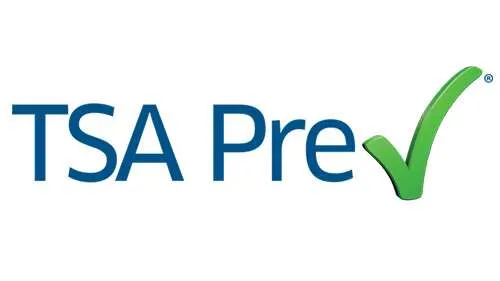
The TSA PreCheck ® program expedites traveler screening through participating TSA security checkpoints.
- Global Entry
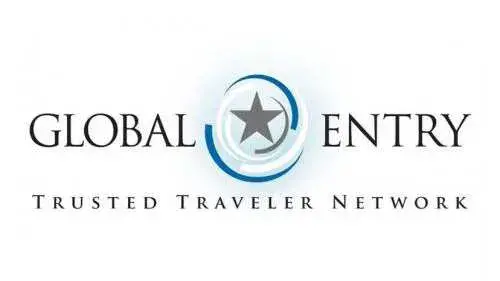
Global Entry allows expedited clearance for pre-approved, low-risk travelers upon arrival in the U.S.
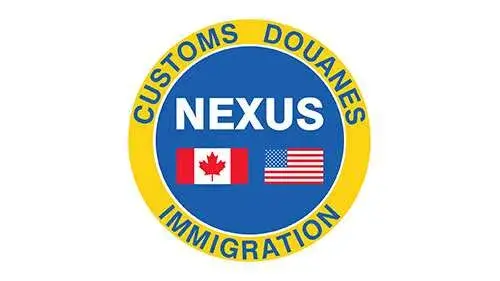
The NEXUS program allows pre-screened travelers expedited processing when entering the U.S. and Canada.
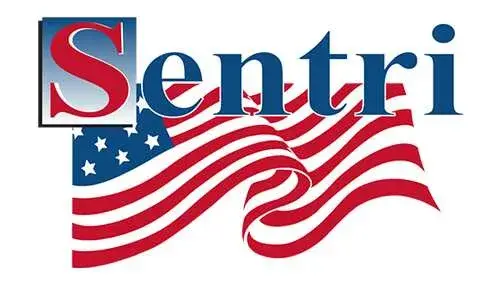
The Secure Electronic Network for Travelers Rapid Inspection (SENTRI) is a program that allows expedited clearance for pre-approved, low-risk travelers upon arrival in the U.S.
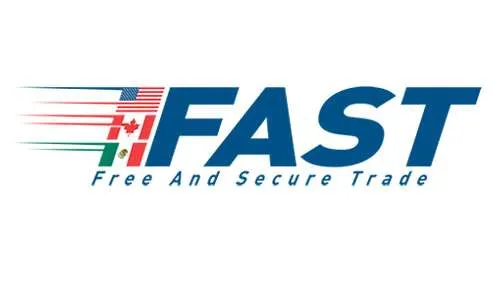
The Free and Secure Trade (FAST) is a commercial clearance program for known low-risk shipments entering the U.S. from Canada and Mexico.
- Trusted Traveler
- Trusted Traveler Comparison Tool
- TSA PreCheck

COMMENTS
G. Policy: The following travel policies apply to all DHS organizational elements serviced by the DHS Office of the Chief Financial Officer authorized to travel. ... A contractor-issued Government travel charge card will be issued to frequent travelers. A frequent traveler is an employee who travels two or more times a year. - 4 -
This directive establishes the Department of Homeland Security (DHS) policy for the Government travel charge card and travel advances. II. Scope ... Use of the contractor-issued Government travel card is required for all official travel expenses in accordance with P.L. 105-264, dated October 19, 1998. Employees shall use the card to purchase ...
Authorized by the DoDI 5154.31, Volume 4 [PDF, 10 pages], the Defense Travel Management Office (DTMO) manages the card program, providing guidance, policy, and training, and serves as a liaison to GSA, the travel card vendor, and DoD Component Program Managers on travel card related issues.DTMO is also responsible for developing, coordinating, and maintaining the Government Travel Charge Card ...
Cardholders. Travel cards issued to personnel for use during official travel are Individually Billed Accounts, or IBAs. Cardholders with an IBA are responsible for payment in full of the undisputed amounts due in the monthly billing statement from the card vendor and should refer to the Cardholder Reference Edition of the Government Travel Charge Card Regulations [PDF, 9 pages] for complete ...
Public Law 112-194, the Government Charge Card Abuse Prevention Act of 2012, amends Section 2 of TTRA and outlines the minimum requirements to ensure effective management controls. Scope and Applicability. This Order provides policy, standards, instructions, and procedures governing the management and use of the travel card.
the Travel Card Program and describes the DHS relationship with the travel card bank, referred to throughout this policy as the "bank." The travel card is authorized for the purchase of certain goods and services while on approved, official government travel. The Travel Card Program saves
DHS and the Coast Guard. c. This Manual provides the detailed policies and procedures called for by the Travel Card Program Policy section of the DHS Financial Management Policy manual. Compliance with the policies and procedures contained in this Manual will be vigorously monitored and enforced. 5. GENERAL. a.
1. Overview. The Government Travel Charge Card (GTCC) is mandated to be used by DoD personnel to pay for authorized expenses (including meals), when on official travel unless an exemption is granted. This includes temporary duty (TDY) and per component guidance, Permanent Change of Station (PCS) travel. 2.
(1) Ensuring program and field offices comply with the DHS Travel Card Manual and applicable DHS and TSA policies. (2) Designating a CPOPC to serve as the liaison between the travel card contractor, TSA, and DHS on issues affecting the program. (3) Establishing internal control procedures and performance metrics to monitor delinquency,
The expanded use of the Government Travel Charge Card (GTCC) Individually Billed Accounts (IBA) to support travel until the Financial Systems Modernization Solution (FSMS) Incident Management Team (IMT) objectives are met as indicated in reference (B)are extended as well. These policy waivers offer a reliable means of financial support ...
s of all Citi Government Travel Cardholders. Inside the U.S., simply call us toll-free at 1-800-790-7206, 24 hours a d. y, seven days a week, every day of the yea. . Outside the U.S., call at +1-904-954-7850.We are here to answer your q. estions and provide the assistance you need. This guide presen. s basic procedures and rules for card usage ...
DHS Travel Card Training Learn with flashcards, games, and more — for free. ... Who is responsible for ensuring all charges are paid on the government travel card (GTC) by the statement due date? The cardholder is responsible for all charges on the GTC. ... At least every 30 days unless his Component's policy requires a more frequent submission.
Cardholder Guide. Official travel for the Department of Defense just became easier with the Citi Department of Defense Travel Card. When you are preparing to use your new card, please read What To Do When I First Receive My New Card.For more information regarding your new card, please read the Department of Defense Cardholder Guide.. Department of Defense Travel Insurance
I have been informed by the GSA Government Travel Card contractor that (cardholder's name) is over 60 days delinquent in payment of his/her account. The total amount due is $ . (Provide the specific information regarding the delinquent charges.) The Government Travel Card contract requires that all outstanding charges be paid upon
back to your bank account, Government Travel Charge Card (GTCC), or both. DoD Travel News. ... Access the Joint Travel Regulations and other travel policies. Need More Assistance? Accessing DTS: First-time Users Travel Assistance: Local Level Support Lookup Contacts: DTS Service/Agency Offices.
The GSA SmartPay program provides charge cards to U.S. government agencies/departments, as well as tribal governments, through master contracts that are negotiated with major national banks. Additionally, to contact Travel Program call 888-472-5585 or email [email protected]. View Travel Charge Card information for travel managers.
Which of the following statements accurately describe DHS policy regarding the use of the travel card for obtaining passenger travel. When tickets are purchased directly from carriers, the cardholder assumes responsibility for obtaining a government contract fare.
The mission critical status prevents suspension of the account (61 days past billing). Once the mission has been completed, the traveler has 45 days to pay the outstanding travel card balance. Travelers using DTS should arrange for scheduled partial payments (SPPs) to ensure their travel card expenses can be paid while on long term temporary duty.
Cardholders must return the travel card to the OPC when transferring to another agency or DHS component. If you are a cardholder, you must still file a timely voucher for travel expenses. A travel charge card may be suspended for non-payment if disputed charges if:
Select SEARCH. The GTCC training report should be at the top of the search results. You can create a bookmark for this report if you will be using it often. Select Launch This Report. Select your specific organizational level and then run the report. If you are a current travel cardholder and your training is reflected in your CGPortal/Learning ...
The DHS Travel Card Program deficiencies related to maintenance of travel documentation, allowability of transactions per regulations, credit balance refunds, the prudent traveler standard, and improper use of a travel card. The auditor identified $43,508 in questioned costs for FY 2017 and made 12 recommendations.
The Travel category includes products or services to assist DHS with personnel travel. Current DHS-wide Travel contract vehicles offer DHS customers access to travel agent and miscellaneous services, passenger travel and lodging. To learn about each current contract vehicle, select the publication below. To learn about other Department-Wide ...
Trusted Traveler Programs. Trusted Traveler Programs (TTP) provide modified screening for preapproved members. The programs improve security by being more efficient during screenings, and facilitate legitimate trade and travel at ports of entry. They allow members to use expedited lanes at the U.S. airports, and when crossing international borders.